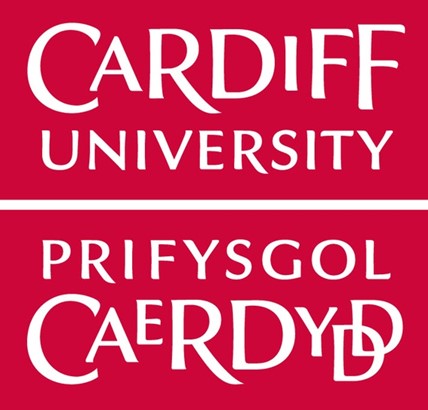7-9 September 2022
Minorities in Irish History
Call For Papers
As the island of Ireland was divided a hundred years ago, minority religious and political communities were left on both sides of the border. The plight of northern nationalist and southern unionist minorities was greatly commented upon at the time, and their experiences have formed the basis of much scholarship since. But there is a much more diverse, and long-standing history of minorities in Ireland to be told, from the arrival of Huguenot refugees in the sixteenth century or the flourishing Jewish communities at the turn of the twentieth century, to the long struggle for gay rights leading to the decriminalisation of homosexuality in 1982 in Northern Ireland and 1994 in the Republic of Ireland. The history of Ireland’s own indigenous group, the Mincéirí/Traveller community, features relatively sparsely in much mainstream scholarship, but challenges the notions of ethnic cohesion and cross-class alliance which underpinned the formation of the Irish national community and the achievement and development of Irish independence.
This conference, at Cardiff University on 7-9 September 2022 aims to explore the experiences of the diverse minorities who have shaped Irish history since the early modern period, asking how the major interpretations, geographies and periodisations underpinning Irish historiography might change if minorities are brought more into focus. The conference is kindly supported by the Irish Department of Foreign Affairs and Trade. We also thank the Irish Embassy in Great Britain and the Consulate-General of Ireland in Wales for their support for the event.
We invite proposals for 30 minute papers exploring the history of minorities in Ireland since the early modern period, in particular asking how paying attention to the experience of minorities challenges or expands the traditional narratives underpinning the Irish past. Possible themes include, but are not limited to:
- Religious minorities
- Traveller/Minceir communities
- LGBT+ communities
- Migrants and refugees
- Political minorities
- Minority languages
- Irish minority communities abroad
Proposals should comprise of a 300 word abstract and a short speaker bio. Please send these to conf.irishhistoriansbritain@gmail.com, by 30 March 2022.
Keynote speakers will be announced in due course.
Note: The Conference of Irish Historians in Britain is now adopting an open call for papers. Accepted speakers will have travel costs (standard class from within UK/Ireland, or equivalent), accommodation and all conference meals provided. As we are operating within budgetary constraints, we have a limited number of slots available. The Conference committee will be attentive to the overall balance of the programme when making selections. We warmly encourage proposals from latter-stage PhD students and ECRs, for whom the Conference has a long tradition of providing a supportive forum to share their research.
Organising Committee:
Dr Thomas Leahy
Professor Ian McBride
Dr Caoimhe Nic Dháibhéid

Irish historical and political studies at Cardiff University
Since 2016, Irish contemporary historical and political studies have flourished at Cardiff University in the Politics and International Relations department within the School of Law and Politics. There are three oversubscribed popular modules at undergraduate and postgraduate level focusing on the conflict in and about Northern Ireland and the peace process: Bombs, Bullets and Ballot-Boxes: The Northern Ireland Conflict module at final-year undergraduate level, Conflict and Peace: Northern Ireland at masters level, and also Politics in and about Northern Ireland since 1998 at masters level, run by Dr Thomas Leahy. Dr Huw Bennett also incorporates key aspects of recent and previous conflicts involving Ireland and the UK in his History of British Intelligence module. Cardiff University’s history department includes Irish studies in its teaching, including the Deviants, Rebels and Witches in Early Modern Britain and Ireland module at undergraduate level.
Irish historical studies research is a core component in the Politics and International Relations Department. Various masters and PhD students are researching aspects of the UK, Irish and Northern Irish approaches to the conflict and peace process since 1969 and the Irish War of Independence. Staff including Dr Bennett’s, Dr Jonathan Kirkup’s, Dr Giada Lagana’s and Dr Leahy’s investigate various aspects of the Northern Ireland conflict and peace process. Themes they research include the British intelligence war against the Provisional Irish Republican Army, the Republic of Ireland and dealing with Northern Ireland conflict legacy, British military and political strategy during the Troubles, Irish and Northern Irish political parties’ role in UK politics, and the European Union’s involvement in the Northern Ireland conflict and peace process.
Conflict on the island of Ireland also features in the new ‘Comparative Conflicts Seminars’ run by Dr Leahy within the Conflict and Society Centre, run by Dr Victoria Basham and Dr Simone Tholens. It brings together historical, political science, international relations, legal scholars amongst others studying Irish and Northern Irish topics to share their research in an interdisciplinary environment. Scholars internationally are also invited to participate in the seminar talks. The seminars alongside additional events include guest speakers involved in the Northern Ireland conflict and peace process. Guest speakers have included Westminster politicians, former British military personnel, alongside former republican and loyalist prisoners. The Politics and IR department also invites the Irish Consulate in Wales to events.
We are delighted to be hosting the twenty-second Irish Historians in Britain conference at Cardiff University and look forward to further developing Irish Studies in Wales.
(Image: “Kilmainham Gaol – Dublin, Ireland – Travel photography” by Giuseppe Milo (www.pixael.com ).